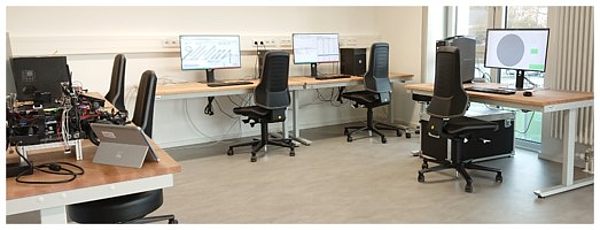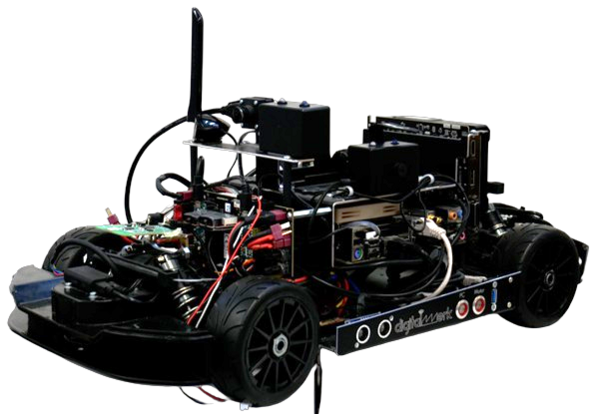Autonomous and Sustainable Mobility
The "Autonomous and Sustainable Mobility (ANM)" real-world laboratory aims to make mobility in our society more sustainable and efficient by researching, developing and testing innovative technologies and concepts for autonomous driving and environmentally friendly transportation solutions. This ambitious real-world laboratory has the potential to make our cities more liveable, make traffic safer and more environmentally friendly and at the same time drive the economy forward. This also includes research in the field of environmental perception for autonomous systems, which is a central component of environmental monitoring for autonomous mobile vehicles.
-
The focus is on the development and implementation of autonomous vehicles in order to make traffic safer and more efficient. This could help to reduce traffic accidents and improve mobility for people with reduced mobility.
The research field focuses on the development of new concepts, methods and technologies for safeguarding real-time capable autonomous mobility systems. The research field can be divided into three basic areas:
- Risk identification, description and analysis of autonomous systems
- Development and validation of functional and technical safety concepts
- Verification of required test and analysis methods
In order to address these research areas, various technologies are developed and used in the real-world laboratory. These include
- Cyber-physical systems and test tracks for testing the developed models and technologies.
- Machine learning to evaluate the environmental data and control the actuators.
- Simulation systems for testing and visualizing various scenarios.
-
The real-world laboratory researches innovative approaches to integrating different modes of transportation such as public transport, cycling and walking into the overall concept of mobility. This makes it possible to increase the efficiency and convenience of transportation. In addition, innovative logistics concepts involving autonomous mobility are also being researched to enable more sustainable and intelligent logistics.





